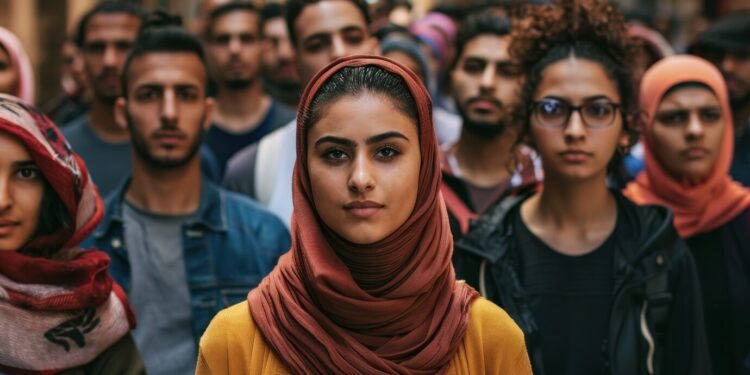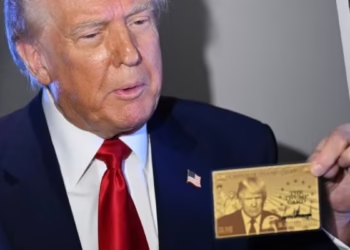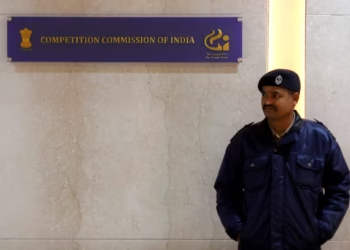India’s Ministry of External Affairs (MEA) has issued a statement advising Indian students and nationals in the United States to comply with local laws following the deportation and detention of some students accused of spreading Hamas-related propaganda. The recent incidents have raised concerns about visa revocations and heightened scrutiny of foreign students involved in politically sensitive activities.
As international students form a significant part of the academic landscape in the US, these developments underline the importance of understanding and adhering to legal frameworks to avoid any adverse consequences. The MEA’s response reiterates India’s position that all Indian nationals abroad must respect the laws of their host countries.
Indian Students Detained and Deported Amid US Crackdown
Reports indicate that at least two Indian students have faced legal action in recent weeks due to alleged connections to Hamas-related content. The US authorities have taken strict measures under existing immigration and national security laws, leading to visa cancellations and deportations.
Notable Incidents:
- Badar Khan Suri, a postdoctoral researcher at Georgetown University, was reportedly detained by the Department of Homeland Security (DHS) over allegations of spreading anti-Israel and Hamas-linked propaganda.
- Ranjani Srinivasan, a PhD student at Columbia University, left for Canada after her student visa was revoked following accusations of promoting content sympathetic to Hamas.
These cases highlight the growing scrutiny of student activities in the US, particularly concerning online discourse and campus activism.
MEA’s Response: Adherence to Local Laws Is Crucial
Addressing media queries, India’s Ministry of External Affairs (MEA) clarified that neither Suri nor Srinivasan had reached out to Indian diplomatic missions in the US for assistance. The MEA spokesperson reiterated that Indian nationals abroad must abide by local laws and that any violations could have legal repercussions.
MEA’s Key Points:
- Legal Compliance: The Indian government expects its citizens to follow the legal frameworks of the countries where they reside.
- Limited Diplomatic Intervention: In cases where individuals violate host country laws, India’s ability to intervene remains constrained.
- No Prior Contact with Missions: The students facing action had not approached Indian embassies or consulates for help.
The MEA’s stance aligns with its broader policy of non-interference in legal matters involving Indian citizens overseas unless they are victims of wrongful detention or unfair treatment.
Understanding the US Approach to Student Visas and National Security
The United States has been tightening its immigration and security policies, particularly concerning foreign nationals engaged in activities perceived as a threat to national security. The revocation of visas based on social media activity, public statements, or association with certain groups has been an increasing trend.
Factors Leading to Visa Cancellations:
- National Security Concerns – The US authorities closely monitor foreign students suspected of engaging in politically sensitive discourse, especially concerning groups designated as terrorist organisations.
- Social Media Activity – Posts, shares, or interactions on platforms like X (formerly Twitter), Facebook, and Instagram can lead to visa scrutiny.
- University Policies – Academic institutions are expected to cooperate with law enforcement in cases of national security concerns.
- Strict Visa Regulations – F1 and J1 visa holders are subject to compliance with US laws, including limitations on political engagement that could be deemed as extremist.
US authorities have emphasised that freedom of speech protections do not necessarily extend to non-citizens in cases involving national security risks.

Legal Implications for Indian Students in the US
For Indian students studying in the US, understanding visa regulations and legal limitations is crucial. Violations can lead to severe consequences, including deportation, visa blacklisting, and restrictions on re-entry.
Key Considerations for Indian Students:
- Awareness of Local Laws: Staying informed about the host country’s legal framework is essential.
- Caution in Online Activity: Posts or comments on sensitive political topics can be scrutinised.
- University Support: Seeking guidance from campus legal aid offices can help navigate potential issues.
- Seeking Consular Help: In case of legal trouble, Indian students should contact Indian embassies or consulates for appropriate advice.
Staying compliant with immigration laws and avoiding politically charged activities that could trigger visa actions is crucial for those pursuing education in the US.
The Bigger Picture: Diplomatic and Educational Impacts
The recent deportation cases have sparked discussions about the broader implications for Indian students studying abroad. The US is a major destination for Indian students, with over 200,000 enrolled across various universities. Any increase in visa scrutiny could affect student mobility and academic collaborations.
Potential Ramifications:
- Stricter Visa Processing: Future visa applicants may face more rigorous background checks.
- Impact on Academic Freedom: Universities may tighten policies on student activism.
- Bilateral Discussions: India and the US could engage in talks to address concerns related to student safety and legal protections.
Despite these challenges, the US remains a sought-after destination for higher education, and adherence to legal norms remains the best course of action for international students.
Final Thoughts: Staying Informed and Compliant Is Key
For Indian students in the US, the key takeaway from these incidents is the importance of staying informed about local laws, exercising caution in political discourse, and seeking proper legal advice if needed. As the MEA has emphasised, compliance with host country regulations is non-negotiable, and violations can result in serious legal consequences.
Understanding visa obligations, being mindful of public statements, and reaching out to university support services or diplomatic missions when needed can help students navigate their academic journey without complications.











